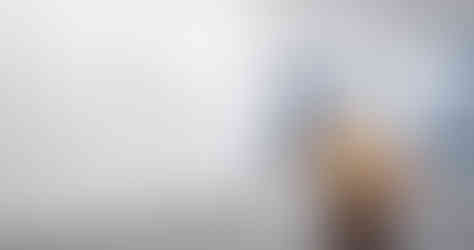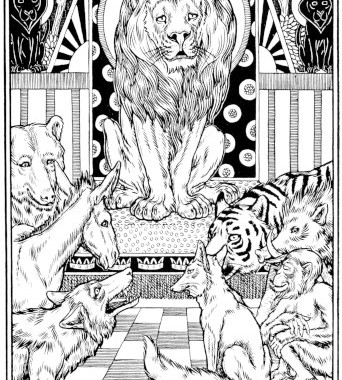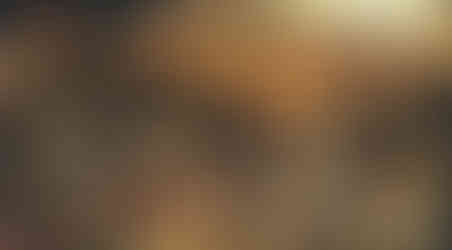Corona and Art, still/again
- Christian Hain
- Mar 24, 2021
- 10 min read
Updated: Apr 14, 2021
This text was written in February 2021. An abridged version has first been published in print by the New Art Examiner.
"Life is finite."
Maybe it's time to savour the simple fact again, so basic and so true: Challenging, empowering, terrible, all-encompassing, and indeed: beautiful. Almost worth some meditation, without, of course, delving into fringe sprititualism and New Age mysticism (yet, that latest show of Jeremy Shaw‘s at Stoschek Collection was very memorable, shortly before the latest, and longest, lockdown hit us). That fundamental verity is also one of the most forgotten and neglected, if not actively suppressed, insights in our modern world. A globalized technocentric society has no place for fragility and contemplation, or so it seems. The swarm knows no limitations: it is, and computers won’t die (well, hardware does, thanks for reminding me, and there'd better be a Time Machine in the cloud...). The eight-billion-and-counting entity that forms humanity today (apparently) doesn't need a raison d'être, numbers will provide all the justification it can ever ask for. Living 90 years is better than living 80 years, being a billionaire is better than being a millionnaire - simple, evident. "Truth" accessible "for everyone". Who'd ask if rational meaning actually makes sense?
Massified humanity wants, and probably needs, to be examined in, and ruled by the numbers, resulting in staged images of ninety-plus year olds getting vaccinated, sold to the public as the highest - not merely medical but overall human - achievement of recent decades. An in-depth image critique would not omit the cartoon sweater here, deliberately chosen to make the nonagenarian look as “hip’” and “fresh” as possible (PR people are in general rather stupid).
Needless to say, the like imagery would have appeared absurd and utterly ridiculous still a couple of years ago. But it’s all in the air of the times, in line with overprotected children bereaved of every chance to develop an individual personality, a unique, singular, character moulded by "bad", "dangerous", and even "hurtful" experiences up to pensioneers who'd never go cycling without their helmet, still not having found, or only ever cared for, a meaning in their life, and consequentially death. Never having consciously applied meaning, there's much "unfinished business", that in the end it gets ever harder to push aside, and the angst grows stronger the older a society grows.
We experience the reality of a world where politics impair human dignity in the name of "life and health" (something like the new "law and order"), as human beings are no longer allowed to be social entities (hey, if reality seems blown out of all proportions, why should this critique lag behind...). People are taken prisoner not only of their own fears but literally by others: sentenced to life, to subsist at all costs. Haven't we all heard stories of somebody's relatives unable to leave their cell - pardon: suite! - in a retirement home for months, against their will, because only the will to live is deemed "rational", and superior to every other value? Life above everything and at all costs, even if it means imprisonment without the chance for parole.
Maybe it's also time to think about quality again, shouldn't the way we live now be as important as the mere fact of existence - ultimately: what do some years more or less matter? But of course, "quality" is measured in human values, it's subjective, irrational, thus implicitly dangerous, hard to describe in statistics, and not easily simulated by software. We're touching at something here, that science and mathematics can never provide, shelter from the inevitable, meaning in a meaningless reality. There's a close connection between art and death, the former having always been - among other things - an expression of the (more or less futile) attempt to overcome the latter, a mirror of the uttermost human craving to do so. Just like science seeks to vanquish it today, not necessarily more succesful, but certainly less human/e. To seek and to find, i.e. to assign, meaning to one's life and consequentally death, means to "make sense" in the sense of a mental creation, something that can probably never be explored or researched, but that needs to be produced: an endemic human power, where the mass guided by natural science falls back ever more rapidly into a purely animal state of mind. The construction of meaning - that's also one purpose, and power, of art.
Another fact that will not easily be contradicted is how people of earlier ages knew better to live with death, more easily accepted their finiteness - not having any other choice, as you could rightfully object. It helped to create worlds for themselves and others, that did not have any less claim to existence and "reality" than the boring given one. But of course: Noboby must be left behind in prescribed "equality", ever repeating and perpetuating the individual's weakness in face of the mass. Any criticism, or mere reluctancy to treat - not alone in a medical sense - the centenarian like the young man, would be "ageism" (that's the correct term? there's a label, an "-ism", for every deviant thought nowadays).
One morning, digging into my fair-trade-certified-eco-friendly-muesli-with-soja-milk, a most heretic thought crossed my mind: What if all those vegan, organic, environmental hipsters realized, that an epidemic is as natural a process as ever it gets? Mother Nature sorting out the old and the weak, particularly where there is a flagrant overpopulation of a given species (mankind’s reproduction number “R” being skyrocking high, and arguably the reason for most, if not all fundamental problems the world and we are facing today). Mother Nature eating her parents, it’s Chronos reversed, but the times are always modern.
That's cynical, of course, and you're right when observing, it's all easily said but merely abstract academical talk, pure theory, whereas, in reality,... Who wouldn't fear for his own life when it's acutely endangered, who wouldn't worry for his relatives? Rest assured, I do. But then again, maybe it’s time to transcedend our most primitive drives and instincts once again. Everything is relative; in a world ruled by natural science, this should mean something.
Let’s savour the truth again: Life is finite. Art... maybe less so.
We live through a time of crisis, and the slogan "May you live in interesting times" suddenly sounds sooo 2019, right? It's probably the closest to an existential crisis, contemporary generations have ever witnessed ("9/11"'s first connotation having long become a Porsche model again), yet it's still not perfectly clear whose fault that is: The virus', or the virus politics', and which one causes more suffering? Honestly, it’s not really that serious a crisis. Without wanting to talk the risks down and make the situation seem all harmless, being neither "covidiot" nor "coronatic": We shouldn’t exagerate Covid-19(/20/21/...). Compared to the plagues of the past - and present, in certain regions -, it's rather tame. Right from the beginning of its criminal career, Covid’s more resembled a botched-burglary-turned-manslaughter than a rampant serial killer... unlike the Black Death, tubercolosis, cholera, smallpox, Spanish/Hongkong/&ct. flus, malaria, or hemorrhagic fevers.
Now here is one scary thought: To what means would our leaders and self-proclaimed healers resort in case, one of those, or a worthy successor, broke free (again) and roamed around the globe? Already we witness politicians eyeing China almost as enviously as dealers in art and other commodities have done for years, eager to lock us all in solitary confinement. But he, who seeks to kill death will only kill life. "We dont need art." "We don't need parties." "We don't need..." Wait, don't we? Your turn, Abe Maslow. And hewing away at that beautiful pyramid's upper storeys.
Earlier generations would have never let themselves be kept from living by all the killer diseases, our ancestors would not have imagined to sacrifice life to living, quality on the altars of quantity (that fixation on numbers being particularly nonsensical on the background of life's finiteness). Life being finite, and the number of people you met or only heard about no less, past generations had a healthier stance towards death, accepting the inavoidable as a mere fact – nothing you couldn’t overcome in works and values. That’s Art, too: To make something, out of nothing even.
Perhaps a time traveller from not even a century ago would wonder wether this "War on the Virus" were not merely a sequel to Orson Wells' "War of the Worlds" radio broadcast. It’s hard not to detect at least traces of mass hysteria on a global scale here, let's call it "pandenoia". Sometimes, running headlong into the storm might be better than being paralysed by fear without a way out, than life in the conditional tense, ruled by fear: "What could go wrong, if I left my home (without perfect protection)?" Live and let die, or lead death into life.
How will artists make use of the situation in future works? Being used to working in the studio, and with all kinds of technical equipment that Bezos and others never stopped delivering to their doorstep, the means of production have not altered. But imagine a new Boccacchio coming forward in maybe a year from now (if the plague is over by then), and presenting the Decamerone's Hollywood version: “Ten people*esses equally composed of all phenoptypical variants, sexual orientations, age and socioeconomic groups, get together on Zoom - or Clubhouse! (btw: I wouldn't want to install an app that sends me an invitation) -, to inefficiently spread Fake News and Hate Speech.” State of the Art, and entertainment.
Human beings get used to anything and everything. Being a rather weak character myself, I headed full of optimism into “the situation”, back when it all began, almost a year ago - time flies faster than a droplet infection! -, developed the outlines of another work project, mail-ordered some work-out equipment and academic literature (for dummies) from a discipline, I (still) know nothing about. At some point in summer, I stopped caring about all that, and slid into altogether different interests again, e.g. Kung Fu movies from the 1960s/70s (often accompanied by that one gla– fine: bottle too many, I know, you can relate). Once, and purely by chance, I even watched Braveheart when it was running on TV - yes, that medium for the Covid-risk-group-demographics still exists! That final scene in all its historic bs-ery and pathetic Hollywod kitsch, but...: He's had a point, right? “Freeedoom” on the executioner’s block, what an impressive image. I cannot have been alone to project certain politicians' faces onto the torturers' (as well as the virus', of course)?! See: that's one great thing about art, and pulp too: You may adapt, and transfer, its meaning to almost every situation!
But what are others doing to pass the time, not artists: the people behind, otherwise exposing, and, a-hem: selling, them? Is it time to commiserate the poor (well: rich) guys, who always get namedropped in The Canvas Monthly? That workforce in their filthy home offices needs to be occupied, somehow! Windows exhibitions are one way of dealing with, and in, the situation (no, that was not a crude allusion to Bill Gates-Covid "theories"), but caution: don't get too risky, as Mehdi Chouakri will confirm whose endeavours were shaken by a rather amusing obscenity complaint. A prudish neighbour had alerted the authorities... Indeed, those are still around, even in Berlin - cute, isn't it? Somehow gives you comfort in trying times.
Reading the galleries' mails was fun, the most professional following marketing guidelines (for dummies) to the letter: There is no bad situation, if you don't mention it. How long did it take you to realize, that the doors are actually closed, and you may only "visit" the show online in, say: Sprüth Magers', newsletter? Art exhibitions now work like a take-away menu, with optional click&collect (at no additional fees, unlike certain other businesses - fie, Ikea Germany!). Uber Eats Art - that actually sounds like a great business model! "At the end of the day, every crisis is a chance; when the going gets tough...." Go on, maybe you'll become an art collector one day!
One really smart, or at least business-minded, dealer clan turned their exhibition space into a Covid test centre like they sprung about everywhere in Berlin before Christmas. With about €10 PP and €150 resale price, while employing medicine students for the testing, they could certainly afford something nice under their tree. That profit margin is even better than your gains on the stock market over the past year - even if you went in at the perfect moment (which nobody did)!
Physical art fairs might be done for good, but trust me: the guys from Basel won't mind. If your brand is strong enough, the change offers a great savings potential! ...After all: Who in his right mind would travel to Basel when he can also spend some quality time with his tablet onboard a yacht in the Carribean, or Chinese Sea?!
Meanwhile, museums opted for video tours, and it will be exciting to see what happens when they're open again: Will people come back? Or will they be too much used to contemplating all kinds of art on screen, without necessity to leave their home, or wear something else than pajamas? Potentially fearing this, Berlinische Galerie offered "Audio Walks" to architectural sites in the institution's neighbourhood. Joining, you might have brought one or two (or more) bottles of your favourite beverage... but please, no living person not belonging to your household - escorts don't count, even if they invented "click&meet"! Kindl Brewery's Art Foundation combined window shopping with a similar experience: Behold art through the windows, listen to an audio installation on the dedicated app, and hold a - well, "Sterni", or Brlo, or whatever brew you prefer, even a Kindl (soaking that mask in it, might sound like a great idea, but it really isn't).
Some jointly managed Berlin public galleries like the Gemäldegalerie ("Picture Gallery") went a step further, and offered guided visits by phone. ...Indeed, no typo. And no, not for the blind, but "for everyone". At least, it could preserve that "aura" thing.
For the rest, professionals and audience alike are still waiting "for all this to blow over" (did you notice: those ordering to lock down all pubs have clearly never watched "Shaun of the Dead"). Mentioning film again: Berlinale Film Festival was reported, and will start streaming these very days, I even got an accreditation (for a considerable fee - can nobody say, they‘d pay for good reviews). Soon, it will be not Netflix-but-Berlinale-and- well: chill-y weather outside, and, according to "hygiene laws", no other household in sight, let alone touch.
So much about my thoughts, when I was asked for a short text on "Art and Covid", all exhibition spaces being in detention. After weeks and months in lockddown, I feel like I badly need a hair cut, starting to look like a whole hippie commune - without the fun part, of course. Social distancing. Or would that actually count as "one household"...?
Corona and the Arts, all around the world, Autumn 2019 (preview)/March 2020-open end
World of Arts Magazine - Contemporary Art Criticism


















Comments